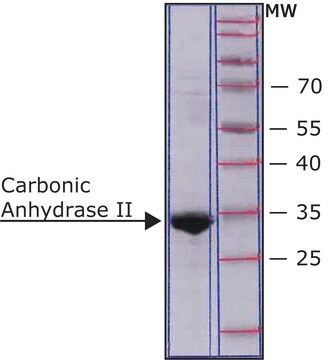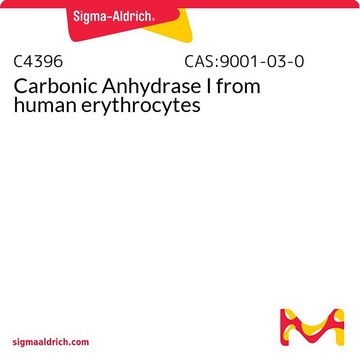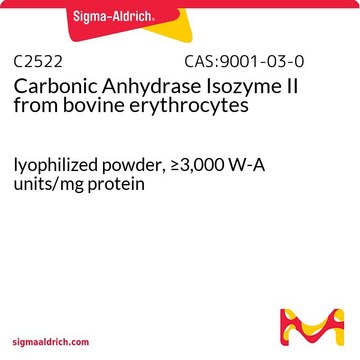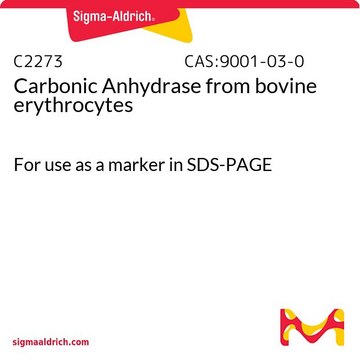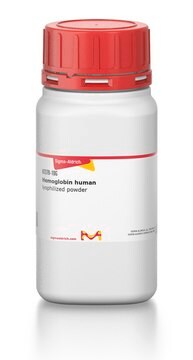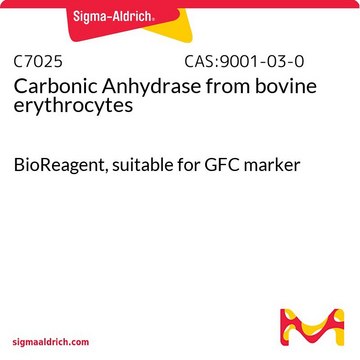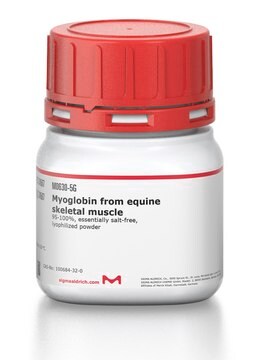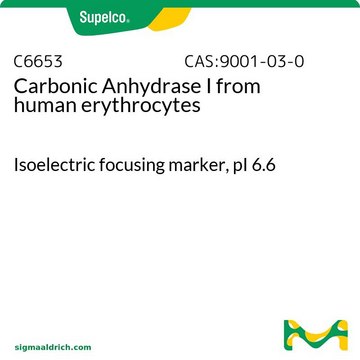C7749
Carbonic Anhydrase II bovine
≥90% (SDS-PAGE), recombinant, expressed in E. coli, ≥5,000 units/mg protein, buffered aqueous solution
Synonyme(s) :
Bovine carbonic anhydrase, Carbonic anhydrase enzyme
About This Item
Produits recommandés
Produit recombinant
expressed in E. coli
Niveau de qualité
Pureté
≥90% (SDS-PAGE)
Forme
buffered aqueous solution
Activité spécifique
≥5,000 units/mg protein
Poids mol.
~29 kDa
Conditions d'expédition
wet ice
Température de stockage
−20°C
Application
Actions biochimiques/physiologiques
Définition de l'unité
Forme physique
Code de la classe de stockage
10 - Combustible liquids
Classe de danger pour l'eau (WGK)
WGK 1
Point d'éclair (°F)
Not applicable
Point d'éclair (°C)
Not applicable
Certificats d'analyse (COA)
Recherchez un Certificats d'analyse (COA) en saisissant le numéro de lot du produit. Les numéros de lot figurent sur l'étiquette du produit après les mots "Lot" ou "Batch".
Déjà en possession de ce produit ?
Retrouvez la documentation relative aux produits que vous avez récemment achetés dans la Bibliothèque de documents.
Les clients ont également consulté
Notre équipe de scientifiques dispose d'une expérience dans tous les secteurs de la recherche, notamment en sciences de la vie, science des matériaux, synthèse chimique, chromatographie, analyse et dans de nombreux autres domaines..
Contacter notre Service technique

